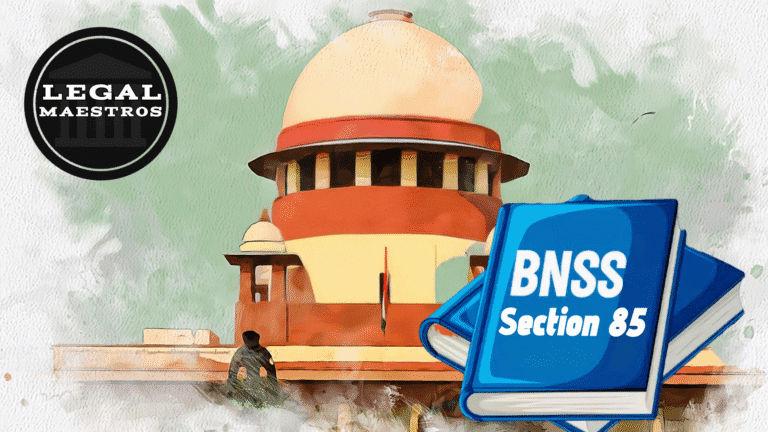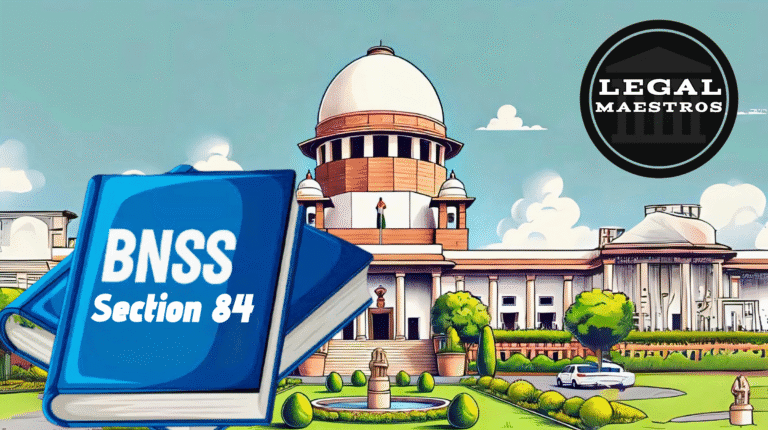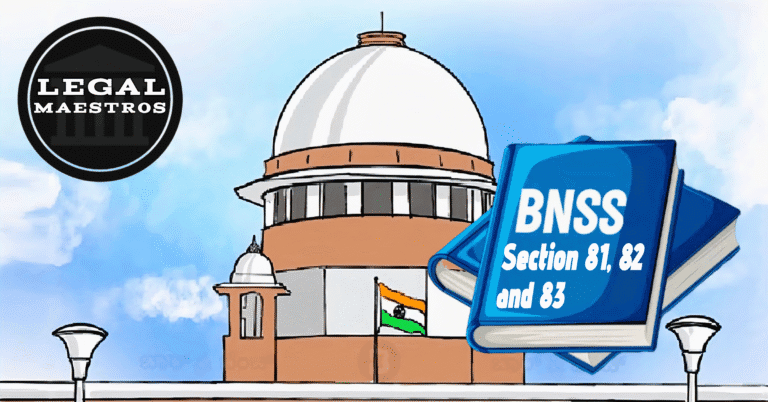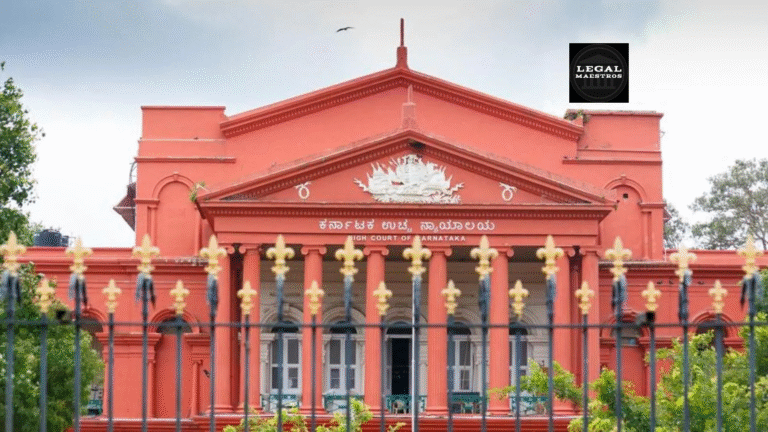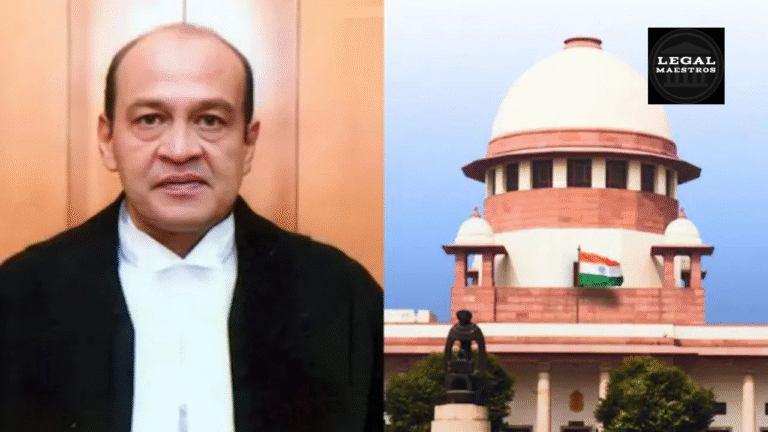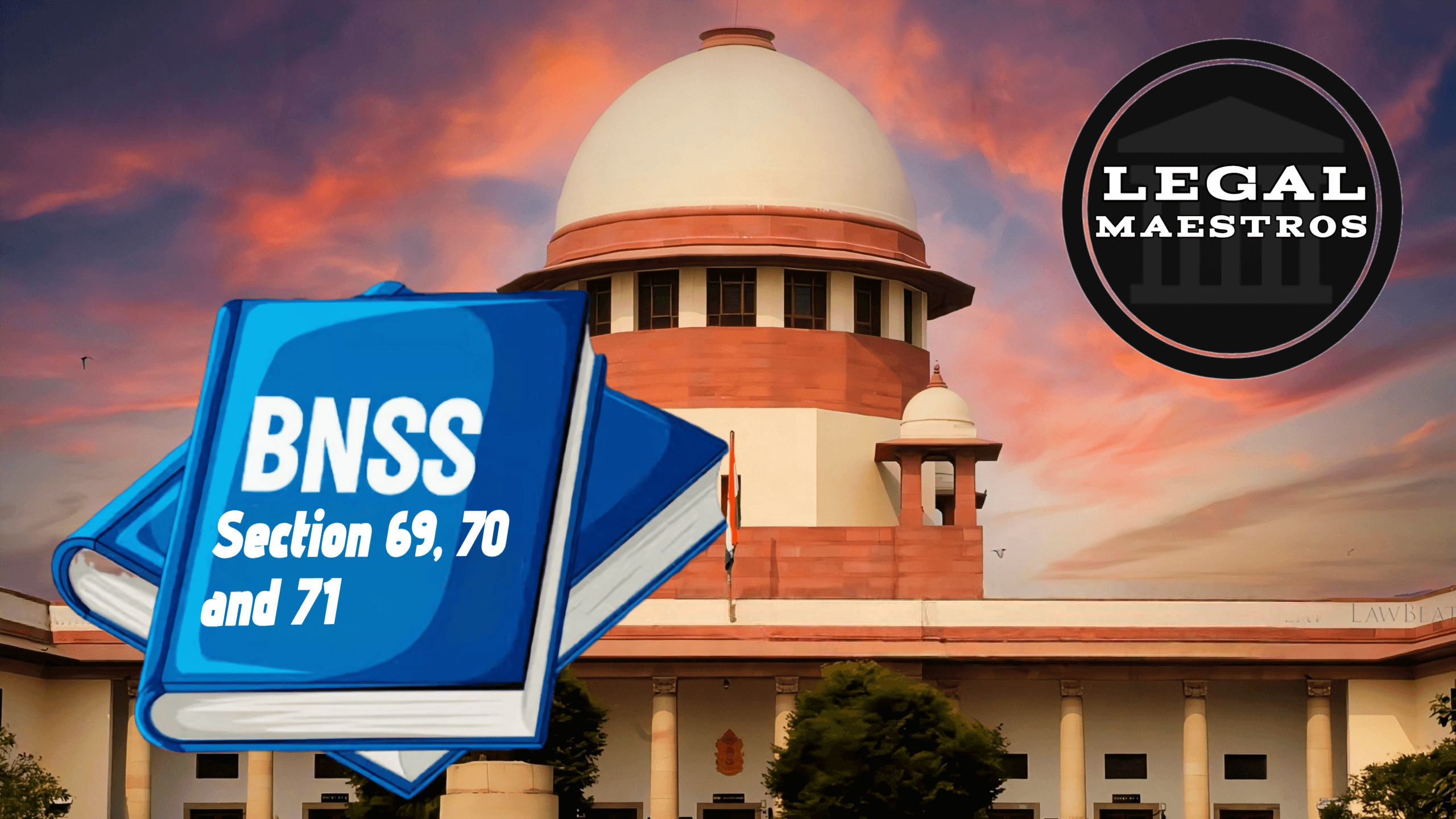
Section 72: Form of Warrant of Arrest and Its Duration
The law, which is referred to as Section 72 of the Bharatiya Nagarik Suraksha Sanhita, 2023, provides a detailed description of the structure and legality of arrest warrants that are issued by the courts. A warrant for arrest is a legal document that gives the police or other authorized personnel the authority to arrest a person. One of the requirements of this clause is that the warrant must be written down. It is not enough for the court to just issue a verbal demand for arrest; the warrant must be legally written down in order to be valid.
Not only must this written warrant bear the official seal of the Court, but it must also be signed by the presiding officer of the Court, who is often a magistrate or judge. In order to validate the warrant and differentiate it from an informal or unlawful order, certain components are absolutely necessary.
It is also made very clear how long such a warrant will remain in effect. In accordance with the provisions of Section 72(2), the warrant will continue to be valid until one of the two criteria materialize. Initially, it is revoked by the same court that issued it in the first place. The possibility exists that this will take place if the court is convinced that the arrest is no longer required. Second, the warrant is carried out, which means that the individual who is specified in the warrant is taken into custody.
For More Updates & Regular Notes Join Our Whats App Group (https://chat.whatsapp.com/DkucckgAEJbCtXwXr2yIt0) and Telegram Group ( https://t.me/legalmaestroeducators ) contact@legalmaestros.com.
Suppose, for instance, that on March 1, 2025, a magistrate issues a warrant for the arrest of a person who is accused of fraud. This warrant will stay in effect until either the accused person is apprehended or the court decides to revoke the order due to a lack of urgency or a mistake.
This clause ensures that the police or officers who are executing the warrant do not have any confusion over the expiration of the warrant and that they are able to carry out their tasks without any lawful obstructions that are not necessary.
Section 73: Power to Direct Security to be Taken
In accordance with Section 73 of the Bharatiya Nagarik Suraksha Sanhita, 2023, the courts are granted the authority to exercise their own judgment in order to strike a balance between the necessity of arrest and the rights of the individual. Given the provisions of this section, the court has the authority to endorse a directive on the arrest warrant, which gives the officer the authority to release the individual if he offers sufficient security.
It is possible for the court to write a direction, which is referred to as an endorsement, on the warrant while it issued the order. Through the use of this endorsement, the officer who is executing the warrant is granted permission to release the individual from detention if the individual makes a bond payment. Additionally, this bond needs to be backed by adequate sureties, who are individuals who promise that the accused will appear in court before the judge. This authority is helpful in situations where the court is of the opinion that the individual does not pose a threat of fleeing and can be relied upon to voluntarily appear in court once security has been given.
The endorsement needs to include the following three essential details:
The quantity of sureties that are necessary.
The particular sum of money that the sureties and the individual are required to bind themselves to and bind themselves to.
specific information regarding the date and hour that the individual is required to appear in court.
For the purpose of better understanding, let’s look at an example. Take for example that Rajesh is issued a warrant for his failure to appear in court for a matter involving a bounced check. Although the court is aware that Rajesh does not have any prior criminal record, it still decides to issue an endorsement that permits the officer to release Rajesh on the condition that he provides a bond of ₹50,000 with two sureties. It is also stated in the endorsement that Rajesh is required to appear before the court on July 15, 2025, at ten o’clock in the morning. In the event that Rajesh satisfies these requirements, the officer will place him under arrest but will not take him to jail. Rather than that, the bail is sent to the court, and Rajesh is free to depart with the requirement to appear at the time that was scheduled.
Consequently, this part plays a crucial role in ensuring that judicial economy and respect for individual liberty are maintained by preventing the unnecessary detention of individuals who do not pose any risk of escaping from confinement.
Section 74: Warrants to Whom Directed
According to Section 74 of the Bharatiya Nagarik Suraksha Sanhita, 2023, the individuals to whom the warrant of arrest may be directed are specified. Typically, warrants of this kind are issued to one or more officers of the law enforcement agency. Considering that the police are the official law enforcement entity that is tasked with the obligation and authority to arrest individuals in accordance with the law, this is the generally accepted procedure.
But in addition to that, the section also has a significant exemption. In the event that instantaneous execution of the order is required and there is no police officer readily accessible, the court has the authority to delegate the execution of the warrant to any other individual or individuals. Therefore, it is possible that even private individuals could be authorized to carry out the arrest in the event that the conditions are so extraordinary.
As an illustration, this can be made clearer. During the course of the court procedures, a magistrate in a distant community discovers that a dangerous accused individual is on the verge of breaking free. Neither a police officer is present in the courtroom nor is one available in the surrounding area. In order to prevent the individual from escaping, the magistrate has the ability to issue a warrant that may be issued to a responsible citizen, such as the headman of the village or even a court clerk, and give them the authority to arrest the individual. This authority is intended to ensure that the administration of justice is not slowed down only owing to a lack of available law enforcement officers.
As an additional point of interest, Section 74(2) discusses the circumstances in which a warrant is issued to several police or specific individuals. In situations like these, the warrant may be carried out by all of them together, by any one of them, or by any combination of them. Even if not all authorized police are present at the same time, the individual can still be arrested thanks to this provision, which allows for flexibility in the execution process.
For instance, if a warrant is issued to three officers—Officer A, Officer B, and Officer C—and Officer B finds the person who is being charged when he is alone, then Officer B is able to arrest the individual without having to wait for the other officers to arrive.
As a result of this provision, law enforcement can be more prompt and flexible, and delays in the process are eliminated, particularly in cases that are urgent.
